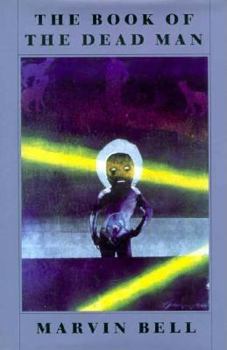The Book of the Dead Man
Select Format
Select Condition 
Book Overview
Celebrated poet Marvin Bell's ninth major collection of poems is his most provocative and imaginative to date. Exploring the wisdom and genius of ignorance, fallibility and mutability with Zen-like detachment, Bell's new poems respond to the admonition, "Live as if you were already dead."
Format:Paperback
Language:English
ISBN:1556590628
ISBN13:9781556590627
Release Date:January 1993
Publisher:Copper Canyon Press
Length:80 Pages
Weight:0.35 lbs.
Dimensions:0.5" x 6.3" x 9.3"
Related Subjects
PoetryCustomer Reviews
2 ratings
A contemporary Pilgrim's Progress
Published by Thriftbooks.com User , 22 years ago
Literature has its heroes and its antiheroes, but now it has its first non-hero, the "dead man," who is the title character of the poems in The Book of the Dead Man. This incredible and puzzling person journeys through the limbo between the end of life and the beginning of death. As author Bell states in the book,"The dead man is perfected fallibility." Quotes by other people on the back cover imply that it is a spiritual work, but is that really, or only, what it is? As I read it, I thought of it as many different things. It's a contemporary Pilgrim's Progress, in which the non-hero's progress occurs at the end of life/the beginning of death. It's a litany of the saints, but the non-hero is the only person sanctified, not by doing good works, but by living and dying. It's a comic opera, a Shakespearan tragedy, and a tall tale, all intertwined in a sequence of poems. Ultimately, it seems to be an epic poem that begins, as epics do, in media res, and finds its meaning in a beginning that is a never-ending end. It's an epic of fragmented ideas and images that depicts a faceless Ulysses as Everyman turning into No Man. In contrast, two other American epic poems come to mind. In Walt Whitman's Leaves of Grass, the poet is the hero celebrating himself and his country. In William Carlos Williams' Paterson, the city itself is the hero celebrating its history and its people. In The Book of the Dead Man, the dead man is the non-hero celebrating nothing more and nothing less than the enigma of life/death experienced in the ordinary and the extraordinary aspects of being human. There are few heroes and anti-heroes in real life. Like the dead man, most of us are non-heros. In the character of the dead man, Bell has discovered a brilliant vein of literary gold that enables him to mine thoughts that take us to a convluted place in which life and death twist around and connect at their ends like a cosmic Moebius strip. This paradoxical book takes you, line by line, to the twilight world of the dead man, where one question rises above all others to haunt you: Is he dead? And there is another question that haunts the first question: What does "dead" mean? Read the book, and you'll find new answers on every page. One of its wondrous paradoxes: It is a warmly chilling odyssey.
The dead man may be wrong or right, but he doesn't lie.
Published by Thriftbooks.com User , 27 years ago
I hate hype, but I believe TBOTDM is essential reading for mortals. Much has already been made of the implications of the "form" of these poems. Okay, they're unique. But the interesting part is that the Dead Man sees things from both sides. . .and the dead man never lies. Take those propositions to your logic teacher and you'll soon be glad for a poet like Marvin Bell. Anyone who doesn't "get" poetry, or who loves poetry, but is fixated on the question "what is it?" will be startled. Read it twice, then read Bell's sequel, "Ardor." You'll get it, whatever "it" is.





